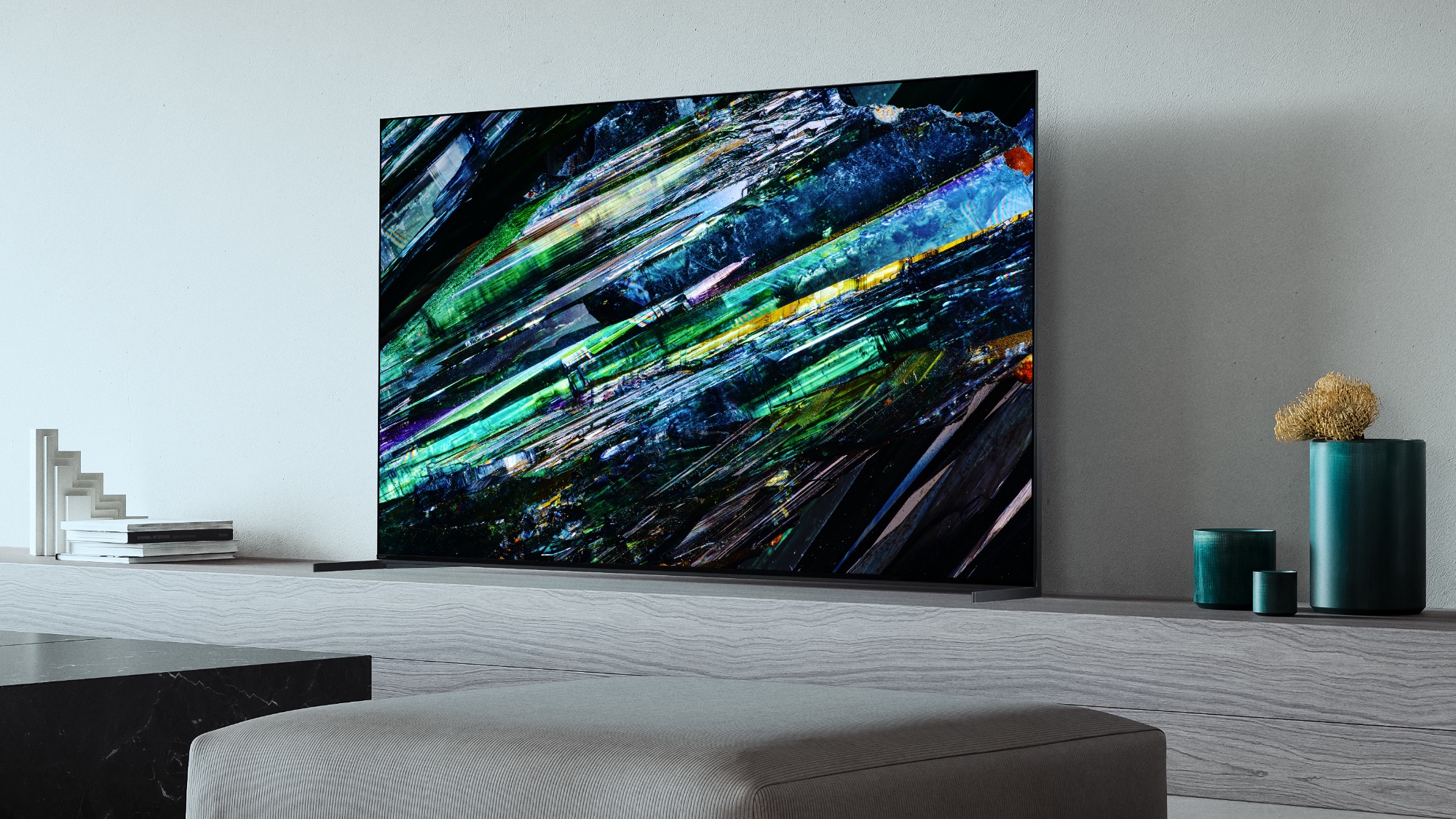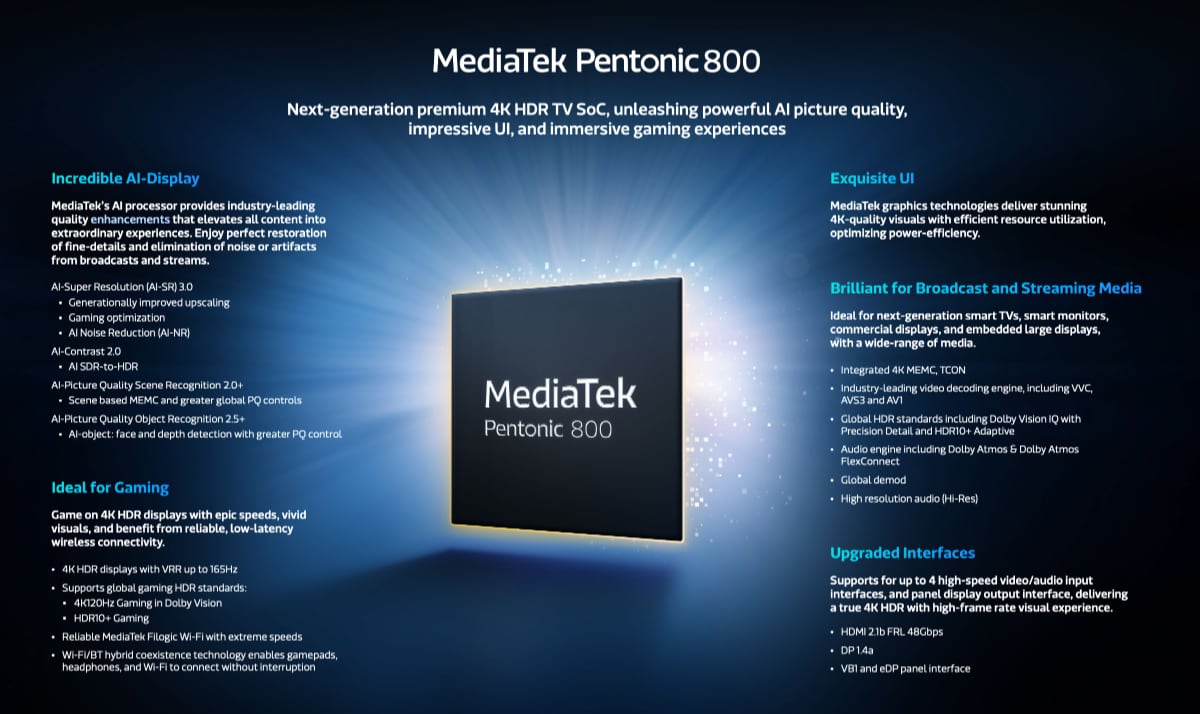
MediaTek has officially unveiled a brand new chip and it’s set to invite a world of future-proofed OLED TVs that will offer some truly amazing specs.
The chip powering all the innovation is called the Pentonic 800 and it will enable 165Hz VRR, improved AI processing, Wi-Fi 7, and plenty more.
MediaTek announced the new chip in a blog post highlighting its more advanced internals that include an upgraded GPU, CPU, AI, and co-processors, all of which will bring some of the newer OLED models tantalizing upscaling proponents, among a plethora of other enhancements.
Given its primary use case in Google TVs, however, chances are good you'll be seeing this new SoC in 2025 Sony, TCL and Hisense models.
MediaTek did not say when to expect the official launch of its Pentonic 800 chip or in what TVs you might be able to experience it in, but the prospect is one of extreme interest. Given its primary use case in Google TVs, however, chances are good you'll be seeing this new SoC in 2025 Sony, TCL and Hisense models.
The AI chip of the future

Although you might not have heard about them before now, Pentonic SoCs can be found on some of the best OLED TVs, with the Sony Bravia A95L (pictured above) sporting MediaTek’s Pentonic 1000, while both 2023 and 2024 TCL TVs were kitted out with the Pentonic 700. The chips are a staple primarily on the best Google TVs due in large part to quality software compatibility.
But the new Pentonic 800 is set to be a major upgrade, leveraging as much as 50% faster processing and a 60% reduction in memory bandwidth. The new SoC corrals a quad-core 1.8Ghz Arm Cortex-A73 CPU, an Arm Mali-G557 MC1 GPU, and 64-bit DDR4 RAM @ 3200Mbps.
MediaTek sees the Pentonic 800 as the pinnacle of super resolution and picture quality enhancements, delivering “near-perfect restoration of content or details and the elimination of noise or artifacts from broadcasting or internet streams.” This will be made possible thanks to an adapted AI engine with far improved object and scene recognition parameters.
Beyond just the AI improvements, the Pentonic 800 will bring 4K support up to 165Hz VRR. Currently, gaming is relegated mainly to 144Hz on most TVs, with some newer models, like the TCL QM8 Mini-LED, capable of hitting 240 VRR at lower resolutions. The Pentonic 800 will allow you to game on TVs at 165Hz VRR at 4K resolution, but it will only be available when paired with one of the best gaming PCs as consoles can’t reach anything higher than 120Hz.
If that wasn’t enough, the TVs of the future using the Pentonic 800 will also support Wi-Fi 7, making them far more advanced over those currently using just Wi-Fi 6 vs Wi-Fi 6e. Wi-Fi 7 aims to herald in more robust wireless transfer potentials, ensuring data like that of your streamed content land far swifter and smoother on the TV.
No manufacturer has yet to say that they'll be using the 800 chip, but given the widespread adoption of MediaTek's previous chips, it's almost a given that we'll be seeing these in a future set(s) from Sony, TCL and Hisense.







